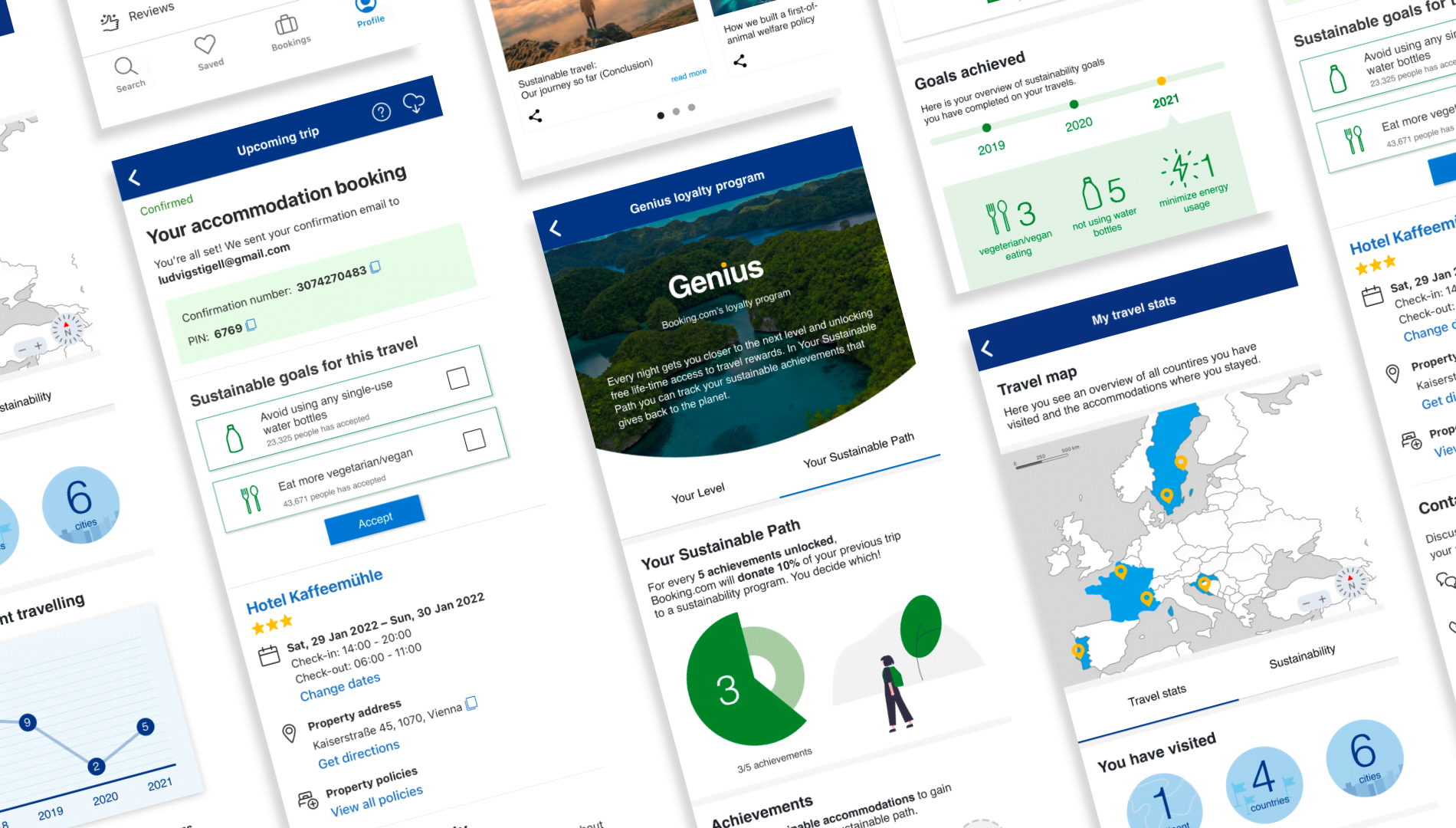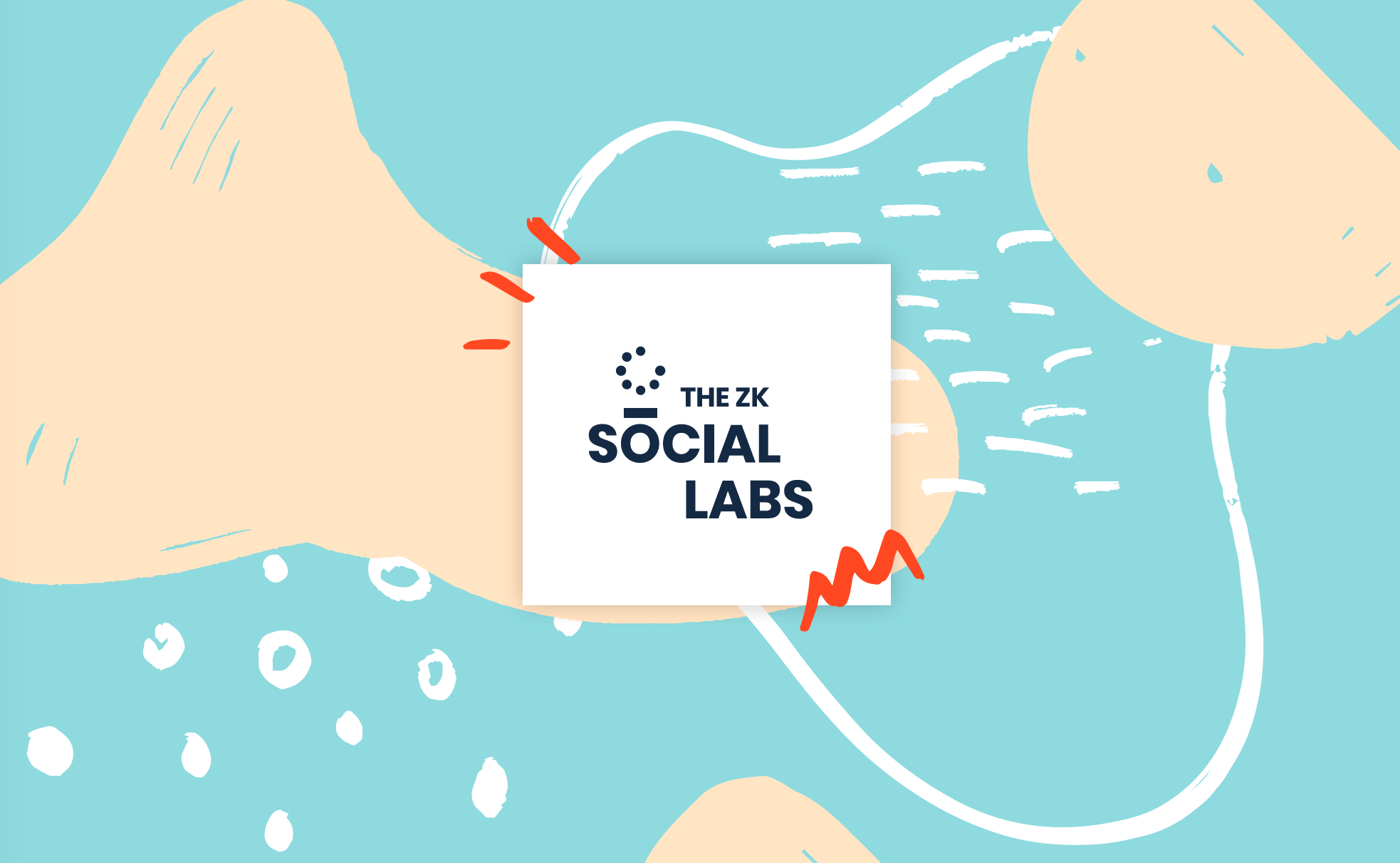
Sustainable path
A new sustainable loyalty programme for Booking.com
-
Client:
Booking.com
- Team:
-
Disciplines:
Concept, UX/UI, Product Design
-
Schoolyear:
2021 - 2022
How can sustainable travel be promoted when loyalty programmes generally reward the users’ frequency of travel? Does this frequency approach to loyalty programmes still fit people’s needs? We were challenged to find innovative ways to promote sustainable travel and increase brand loyalty for Booking.com.
With climate change being a burning issue for the travelling industry, many companies are taking initiatives to become more sustainable. At Booking.com this is a key priority. The company became carbon neutral in 2020, and at the end of 2021 they launched a new sustainable badge for accommodations that are making sustainable efforts.
Now they are looking for new ways to encourage travellers to act more sustainably.
The solution for the loyalty programme needs to keep Booking.com profitability and customer rewards in mind. The system should also be easy to understand and able to work with the current system

We researched papers on sustainable tourism, loyalty programmes, and read articles on trends within tourism. We also conducted a survey and held interviews about these matters.
These insights guided us in our ideation process, where we brainstormed concepts and explored new features.
We started by developing three separate concepts, creating mock-ups and writing rationales to externalise our thoughts and materialise them before presenting to the client.
We received good feedback from Booking.com that suggested us to focus our time on the more innovative parts and ignore the smaller optimisations.
Meetings with the client, critique sessions with other students, and further ideation sessions led us to combine the essential features from the three concepts into one solution.
The solution is a parallel version of the current Genius programme, where sustainability plays an essential role.
Not as blue anymore
We developed the loyalty programme by adding new features in the personal and booking section of the app. Our three most important goals were to promote longer stays, encourage and educate users, and help the user to track their progress towards sustainability.
One way of facilitating more conscious behaviour was by introducing a system that counts nights, instead of the current system that counts the number of stays. This change encourages people to spend more nights in one place instead of visiting multiple accommodations in a short period of time.

A new feature in the app proposes green goals that the user can choose to accept on the page of their trip. The goals promote sustainable behaviour such as recycling waste or not using plastic bottles.

We updated the sustainable badge system for accommodations to three levels (instead of one) to let people know which places make more environmental efforts. We also included a section within the app containing articles related to sustainable travel.

We track the progress of users through achievements and data visuals. Achievements are offered after booking sustainable accommodations, and all the data related to the users’ sustainable travel will be illustrated through graphs in a specific part of their profile.

What about profitability?
One of our main challenges was to find a way of rewarding users for their green choices while also keeping in mind Booking.com profitability. Initially, we wanted to offer users rewards in the form of monetary discounts, since our research showed that people wished loyalty programmes offered more discounts. However, together with Booking.com, we concluded to not follow this proposition to seek more innovative ways of motivating people to book sustainable accommodations. We decided to introduce the concept of ‘achievements’, which are badges that will bring you closer to a donation made by Booking.com, to a sustainable project that the user chooses.

Our solution consists of an updated version of the Booking.com app, that promotes and educates users in sustainable travel, and encourages them to book accommodations with a good environmental grading. With this project, we aim to contribute to a positive change in travellers’ behaviour. We want to motivate them to do more slow travel and more reflection on their own environmental footprint while travelling.


